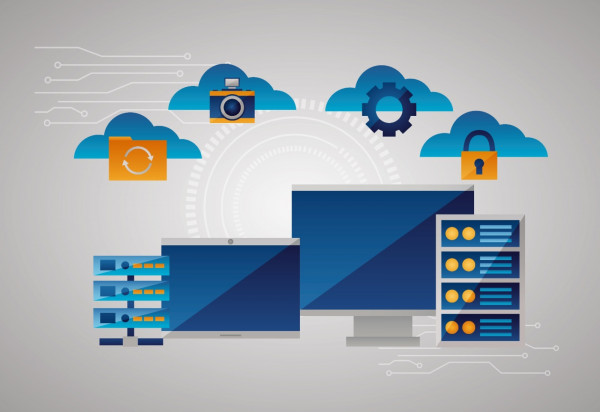In the digital age, education is undergoing a profound transformation, driven by the rapid integration of technology in the classroom. Among the most significant advancements is personalized learning through Educational Technology (EdTech), which is revolutionizing how students learn and how educators teach. Personalized learning leverages technology to tailor educational experiences to the unique needs, skills, and interests of individual students. This approach not only enhances learning outcomes but also makes education more accessible and engaging for a diverse range of learners.
The Rise of EdTech in Education
The global EdTech market has seen exponential growth in recent years, driven by increasing demand for digital learning tools. According to Statista, the EdTech market is projected to reach a value of $279.3 billion by 2029, up from $185.2 billion in 2024. This growth is fueled by the widespread adoption of digital devices, the expansion of high-speed internet, and the rising need for flexible learning solutions in response to the COVID-19 pandemic.
Personalized learning, a core component of EdTech, represents a significant shift from traditional, one-size-fits-all educational models. In a personalized learning environment, students receive customized instruction that aligns with their learning pace, style, and interests. This approach is made possible by advanced technologies such as artificial intelligence (AI), machine learning, and data analytics, which can analyze vast amounts of student data to identify patterns and recommend tailored learning paths.
How Personalized Learning Works
Personalized learning through EdTech involves the use of various digital tools and platforms that adapt to the needs of each student. These tools often include:
- Adaptive Learning Platforms: These platforms use AI algorithms to assess a student’s current knowledge level and adjust the content and difficulty accordingly. For instance, if a student excels in a particular subject, the platform can present more challenging materials, while offering additional support in areas where the student struggles.
- Learning Management Systems (LMS): LMS platforms allow educators to deliver content, track progress, and communicate with students. Many LMS platforms now incorporate personalized learning features, enabling teachers to assign different tasks or resources based on individual student needs.
- Gamification and Interactive Content: EdTech tools often include interactive and gamified elements, which can make learning more engaging. These tools can be personalized to suit the preferences and interests of each student, increasing motivation and participation.
- Data Analytics and Insights: Advanced analytics tools help educators monitor student performance in real-time. By analyzing data on student engagement, comprehension, and progress, teachers can make informed decisions about how to adjust instruction to better meet the needs of each learner.
Benefits of Personalized Learning Through EdTech
The impact of personalized learning through EdTech on education is profound, offering numerous benefits for students, teachers, and educational institutions.
- Enhanced Student Engagement: Personalized learning caters to individual student interests and learning styles, which can significantly boost engagement. When students are more engaged, they are more likely to retain information and perform better academically.
- Improved Learning Outcomes: By providing customized instruction that meets students where they are, personalized learning helps to close knowledge gaps and accelerate learning. According to a report by McKinsey, students who engage in personalized learning show greater academic growth compared to those in traditional learning environments.
- Greater Accessibility: Personalized learning can be particularly beneficial for students with special needs, learning disabilities, or those who require additional support. EdTech tools can provide accommodations and modifications that ensure all students have equal access to education.
- Empowered Educators: With the help of data-driven insights, teachers can better understand their students’ strengths and weaknesses, allowing them to tailor their teaching strategies effectively. This leads to more efficient classroom management and improved student-teacher relationships.
- Scalability and Flexibility: Personalized learning through EdTech is scalable, making it suitable for diverse educational settings, from small classrooms to large online courses. Moreover, it offers the flexibility for students to learn at their own pace, which is particularly valuable in remote or hybrid learning environments.
Challenges and Considerations
While the benefits of personalized learning through EdTech are clear, there are also challenges that need to be addressed to fully realize its potential.
- Digital Divide: Access to technology remains a significant barrier for many students, particularly those from low-income families or rural areas. Ensuring equitable access to devices, the internet, and digital literacy is crucial for the success of personalized learning.
- Data Privacy and Security: The use of data in personalized learning raises concerns about student privacy. Educational institutions and EdTech providers must prioritize data security and ensure that student information is protected from breaches and misuse.
- Teacher Training and Support: To effectively implement personalized learning, educators need proper training and ongoing support. This includes professional development in using EdTech tools and understanding how to interpret data analytics to inform instruction.
The Future of Personalized Learning
The future of education is undoubtedly digital, with personalized learning at the forefront of this transformation. As technology continues to evolve, so too will the tools and platforms that enable personalized learning. Innovations such as AI-driven tutors, virtual reality (VR) learning environments, and advanced analytics will further enhance the personalization of education.
According to a report by Statista, by 2029, 1Bn of the world’s student population will be learning through digital platforms, with personalized learning experiences becoming the norm rather than the exception. This shift will not only improve educational outcomes but also prepare students for a rapidly changing world where adaptability and continuous learning are key.
Personalized learning through EdTech is revolutionizing education by making it more responsive to the needs of individual students. While challenges remain, the benefits of this approach are undeniable. As educators, policymakers, and technology providers continue to collaborate, personalized learning will play an increasingly important role in shaping the future of education. Collaborate with STL Digital and have the latest tools and technology at your disposal to build world-class customized Ed-Tech solutions.



